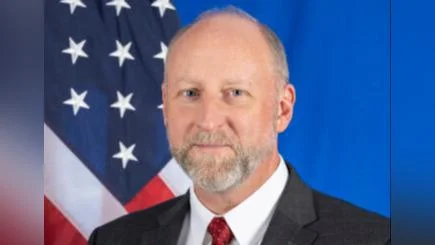Representatives from the United States and several countries in the Western Hemisphere met for the second time as part of the Organization of American States (OAS) Group of Friends of Haiti. The meeting focused on an updated roadmap aimed at addressing security and stability in Haiti.
The United States emphasized its commitment to supporting security efforts in Haiti, stating that security is essential for humanitarian access, governance, elections, and economic recovery. "Hemisphere security remains a core priority for our government. And Haiti’s security, in particular, is important to the United States. Without a baseline of security, no other pillar can stand—whether that be humanitarian access, governance, elections, or economic recovery."
During the meeting, Kenya was recognized for its role in responding to Haiti’s call for support. "Let me begin by once again recognizing Kenya for answering Haiti’s call at an absolutely critical moment. The Kenyans have done everything we asked them to do."
The U.S. also acknowledged contributions from various countries in providing personnel and support to ongoing missions.
Participants discussed confronting terrorist gangs and transnational criminal networks operating in Haiti. The U.S., together with Panama, announced plans to seek authorization from the UN Security Council for a new UN Support Office intended to resource a Gang Suppression Force (GSF), which would succeed the current Multinational Security Support (MSS) mission.
"To that end, the United States—alongside Panama—will seek UN Security Council authorization for a UN Support Office to properly resource a Gang Suppression Force (GSF), the proposed successor mission to the MSS," according to remarks delivered at the session.
The initiative has been endorsed by the Government of Haiti and will require broader international engagement: "This initiative, endorsed by the Government of Haiti, is our collective responsibility. And it is incumbent on all in this room to step up and ensure it succeeds."
Regional cooperation was highlighted as vital for moving forward with these efforts: "The region’s united voice is urgently needed to ensure adoption of this resolution in the coming weeks."
A joint statement supporting timely adoption of a Security Council resolution will be developed within OAS frameworks: "To this end, we look forward to working with you to develop a joint statement of support, within the framework of the OAS, in favor of the timely adoption of the Security Council resolution. Our USOAS colleagues will share a draft of this joint statement shortly and welcome the views of all interested delegations."
In addition to seeking international backing through multilateral organizations like the OAS, member states were encouraged to work with and provide funding for initiatives such as “SECURE-Haiti.” The OAS will continue capacity-building efforts aimed at strengthening Haitian security forces.
"We also underscore the importance of burden-sharing on financial and force contributions," it was stated during discussions.
Four near-term actions were identified as urgent priorities:
- Resourcing current missions effectively during transition periods.
- Securing authorization from relevant bodies such as the UN Security Council for new support structures.
- Enhancing measures against illegal arms flows and gang financing.
- Promoting accountability mechanisms including anti-corruption safeguards.
On political matters concerning governance in Haiti, expectations were set regarding progress by local authorities ahead of planned transitions next year: "On the political front, we expect the Transitional Presidential Council and Prime Minister to make tangible progress on security and prepare for the end of TPC mandate by February 7, 2026. Haiti’s future must be in hands of Haitian people, and their elected representatives."

